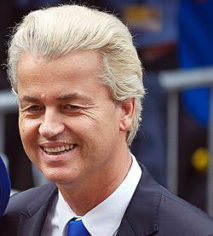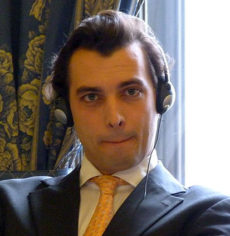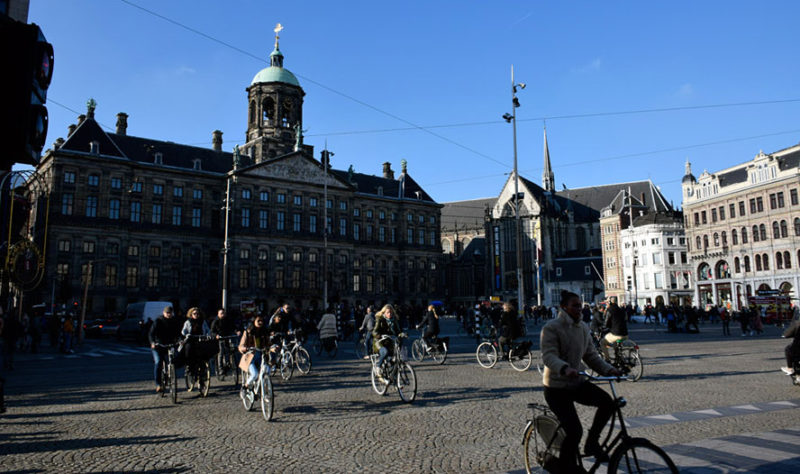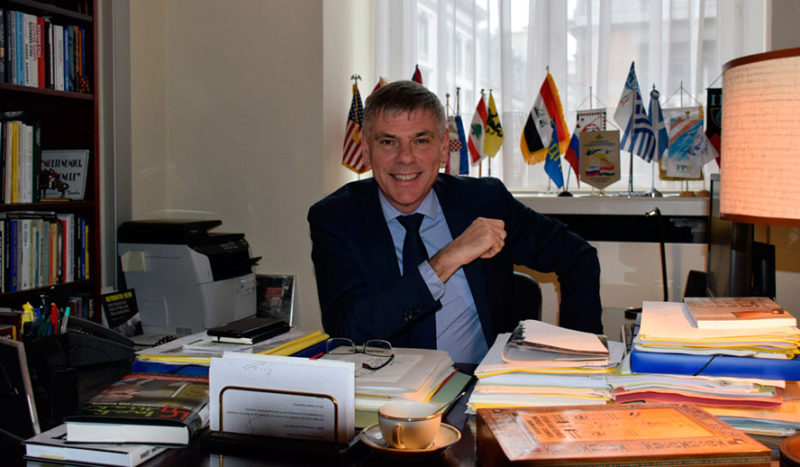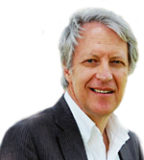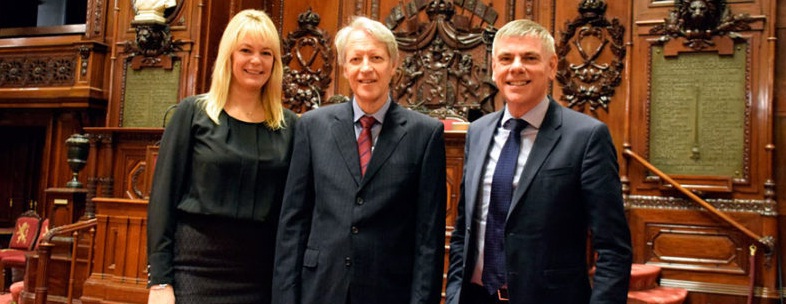 The author, Dan Roodt, (middle) together with Belgian Senator Anke Van dermeersch and MP Filip Dewinter.
The author, Dan Roodt, (middle) together with Belgian Senator Anke Van dermeersch and MP Filip Dewinter.
The rise of ‘new realism’ in the Low Countries
The Netherlands together with the Flemish speaking part of Belgium are a good case study in many of the problems of modern European nations – the struggle to protect one's own identity and way of life in the face of the EU super state's ambitions and mass immigration. There are however considerable differences between the two regions too. Free West Media visited both countries.
Published: December 8, 2017, 12:27 pm
Both the Netherlands and Flanders have seen big political changes over the last decade or so. The theme of immigration has come to define the dividing line of politics in the Low Countries, with most establishment parties defending a laissez-faire policy towards immigration while the newer parties are implacably opposed to it.
Geert Wilders’ support grows
Geert Wilders of the Dutch Freedom Party (Partij Voor de Vrijheid) has become world-famous as a staunch opponent of Islamic migration to the West. The Dutch are a frank people who speak their minds, and therefore Wilders has never made any bones about his opposition to Islam. In February this year, he told the newspaper USA Today:
– Dutch values are based on Christianity, on Judaism, on humanism. Islam and freedom are not compatible. You see it in almost every country where it dominates. There is a total lack of freedom, civil society, rule of law, middle class; journalists, gays, apostates — they are all in trouble in those places. And we import it.
Due to his outspoken criticism of Islam, Wilders has received literally thousands of death threats. He is constantly protected by six plainclothes policemen and lives in a bullet-proof house provided by the state, which includes a panic room. He is driven from his home to the Dutch parliament, or Tweede Kamer, in an armoured police vehicle and has to wear a bullet-proof vest at all times while in public.
Terror brought to your home
There have been two high-profile assassinations of public figures in the Netherlands, which until that time was seen as a tolerant, safe, easy-going society. In the early nineties, government ministers could still be seen commuting in The Hague by bicycle. However, the assassinations changed all of that and made the authorities take death threats seriously. The first was that of Pim Fortuyn on 4 May 2002. The flamboyant Fortuyn was the father of the “new righ” movement in the Netherlands, an ex-Marxist sociologist, homosexual and prolific author of some nine books. The second high-profile case was that of film maker Theo van Gogh, on 2 November 2004.
Geert Wilders’s right-hand man and sometime speech writer, Martin Bosma, told me recently that especially Van Gogh’s murder had a profound effect on him.
– I grew up in a left-wing, Labour Party-supporting home. Until that moment, I was inclined not to question things too much. But he was killed by a Muslim on the sidewalk in the Linnaeusstraat, not even a hundred metres from where I live. It brought the reality home to me.
Over the past few years, Bosma has written at least two books, one on Dutch politics and one on South Africa. He is also working on a Ph.D. thesis describing the Dutch role in fostering a “people’s war” in South Africa that killed 20 000 people. The “people’s war” was a North-Vietnamese strategy adopted by the ANC (African National Congress) and SACP (South African Communist Party) whereby a movement may extend its own support through intimidation and violence against its own potential supporters.
The Freedom Party is now the second biggest party in the Dutch parliament Tweede Kamer, the equivalent of the British House of Commons under the monarchy. The party has twenty seats out of a total of 150. The largest party is the centre-right VVD (People’s Party for Freedom and Democracy), with 33 seats. The VVD was barely able to form a new coalition government after 225 days of protracted negotations — the longest in Dutch history. The so-called Third Mark Rutte Cabinet came finally into being on 26 October. In order to exclude the Freedom Party from government, Rutte had to form a coalition with the left-wing D66 party, as well as two small Christian parties.
The traditional Labour Party or Partij van de Arbeid is following the general downward trend of most European socialist parties. During the elections in March 2017, it crashed to only nine seats in the Second Chamber, its poorest score in recent memory.
The Dutch Freedom Party defines its ideology as “new realism”, which it described during its first election campaign as “a new and stronger liberalism, with more attention to culture, tradition and morality”.
Thierry Baudet attracts the youth
One of the rising stars in Dutch politics is the youthful Thierry Baudet, 34. With his good looks and French-Huguenot name, he took the plunge, formed his own party, the Forum for Democracy, and got two MPs elected in March. However, a recent Ipsos poll showed his party rising in popularity to the equivalent of twelve seats in parliament.
He specifically targets the youth, writing books and holding rallies or debates on campuses. During an interview in Amsterdam in the end of November, he claimed that his party had 20 000 paid-up members:
– The other parties do not have members and no income from their supporters. They depend on government hand-outs for money. We took a different route and recruited members who pay a subscription. We publish books and, where necessary, we even give books away to young people to set them thinking.
According to his recent book, Breek het partijkartel (“Break the party cartel”) the mainstream parties form “cartels” so as to exclude competition. He supports the idea of referenda to “re-establish political balance”. In his book he writes: “We must broaden the possibilities for direct popular influence in the Netherlands.”
In the Netherlands, it is still possible to speak your mind
As in France, the rise of right-wing parties in the Netherlands is sustained by an extra-parliamentary, intellectual movement. An article in the magazine Vrij Nederland named five blogger intellectuals as the “chasers of the new right”: Sietske Bergsma, Wierd Duk, Timon Dias, Geerten Waling and Machteld Zee. All of them have a strong online presence, and write books on topics such as Islam, immigration and Dutch identity.
Another prominent literary and political figure is Joost Niemöller, 60, a seasoned journalist and author of at least twelve books. Although a mainstream journalist during most of his career, he has in recent years gone over to the alternative movement and is supportive of Geert Wilders’s positions. On Twitter, he has also expressed his admiration for Hungarian leader Viktor Orbán.
What distinguishes the Netherlands from many other countries in Europe, is that figures on the right have not been ostracised or banished from the mainstream media. Martin Bosma of the Dutch Freedom Party regularly appears on television, for example, or writes opinion pieces in daily newspapers. He has also been appointed by the Second Chamber as chairman of the interparliamentary commission of the Taalunie, an umbrella organisation that manages Dutch language interests in both the Netherlands and Flanders.
Unlike for the Vlaams Belang in Belgium, there has been no cordon sanitaire around the Freedom Party or the Forum for Democracy, although the party “cartel” excludes the newcomers from any influence. The Netherlands has a long tradition of tolerance and free speech which has helped the “new realism” of the Freedom Party to establish itself.
Vlaams Belang did the hard work – now run over
In Flanders, historically known as the “Southern Netherlands”, things have not been so easy. Belgian socialists watched the formation of the original Vlaams Blok (Flemish Block) in 1978 under its founding leader Karel Dillen with alarm and sought ways to curtail its participation in Belgian politics. The Vlaams Blok campaigned on two major issues: Flemish nationalism, which would lead to Flemish autonomy within a confederal Belgium, as well as anti-immigration. The Vlaams Blok made a breakthrough dubbed by its opponents as “Black Sunday” in the 1991 general election. In that election, the Vlaams Blok went from two to twelve seats in the Chamber, and from one to five seats in the Senate, prompting the Belgian political establishment to seek reasons to ban it. A so-called cordon sanitaire agreement had already been signed by the major parties in 1989 agreeing never to enter into a coalition with the Vlaams Blok and also “never making immigration a political issue”.
During the 2004 parliamentary elections, the Vlaams Blok became the most popular party in Flanders, with one in four members of the electorate supporting it. However, shortly afterwards a Belgian court ruled that some of the NGOs associated with the Vlaams Blok had violated Belgian anti-racism laws in the 1990s because they had suggested in their publications that immigrants should be sent to separate schools and that employers preferring to use non-European workers should pay a special tax. As the party was at risk of losing its state funding and rights to be heard on public radio and television during elections, it chose to disband on 14 November 2004. The current Vlaams Belang was formed five days later under essentially the same leadership, with Filip Dewinter as its chief ideologist and Frank Vanhecke as chairman.
From 2010 onwards, the Vlaams Belang became a victim of its own success. Having largely changed public opinion among the Flemish in favour of more autonomy and less immigration, it was outflanked on the right by the newly formed Nieuw-Vlaamse Alliantie (New Flemish Alliance). The latter party adopted the main elements of the Vlaams Belang ideology and program, but couched it in slightly softer tones, so as to appeal to the mainstream media and electorate. The result has been that the New Flemish Alliance has now grown to be the biggest party in Flanders under the leadership of Bart de Wever, the current mayor of Antwerp. It also participates as a coalition partner in the current Michel government in Belgium, with three ministers in the federal cabinet.
The main difference between the Vlaams Belang and the New Flemish Alliance is that the former is a Euroskeptic party opposed to the current EU system, whereas the latter is pro-Union, preferring to see Flanders’s future as a gradually more autonomous region within a federal Europe that will weaken the central Belgian state.
One Flemish Nation
The Dutch language has 22 million speakers in Europe, with 16 million in the Netherlands and 6 million in Flanders. As an economic unit, the area is already strongly integrated with interministerial cooperation between the Netherlands and the Flemish Area of Belgium. The Language Union is but one example. There is also a “General Delegate of the Flemish Government in the Netherlands”, a diplomatic post currently occupied by Axel Buyse. During the World Wars, there was a strong movement for a “Greater Netherlands” which would unite the two territories under one state and which might even include portions of Northern France or French Flanders that used to be Dutch-speaking as well and where the architecture of some towns still betray a common history. Many people at the time hoped that Germany would support the idea but the Nazis opted for a “Germanization of the Netherlands and Belgium” which would have included adopting High German as language.
Thierry Baudet has already come out in support of an independent Flemish state that would be free to choose its destiny, including greater integration within the Netherlands.
Another common theme that has arisen over the past year or more among members of the New Right or New Realist movements in the Low Countries, is concern over the situation of South Africa’s Afrikaner minority who speak Afrikaans, a language derived from seventeenth-century Dutch. Both Martin Bosma of the Freedom Party and Thierry Baudet of the Forum for Democracy have recently made statements on Twitter suggesting that their human rights should be respected, amid reports of farm murders and other atrocities in South Africa. The Vlaams Belang in Belgium has always maintained strong relations with Afrikaners, with Filip Dewinter often receiving Afrikaner delegations in Brussels.
All rights reserved. You have permission to quote freely from the articles provided that the source (www.freewestmedia.com) is given. Photos may not be used without our consent.
Consider donating to support our work
Help us to produce more articles like this. FreeWestMedia is depending on donations from our readers to keep going. With your help, we expose the mainstream fake news agenda.
Keep your language polite. Readers from many different countries visit and contribute to Free West Media and we must therefore obey the rules in, for example, Germany. Illegal content will be deleted.
If you have been approved to post comments without preview from FWM, you are responsible for violations of any law. This means that FWM may be forced to cooperate with authorities in a possible crime investigation.
If your comments are subject to preview by FWM, please be patient. We continually review comments but depending on the time of day it can take up to several hours before your comment is reviewed.
We reserve the right to delete comments that are offensive, contain slander or foul language, or are irrelevant to the discussion.

Swedish military wants to remilitarize the Åland Islands
The demilitarized autonomy has previously been known as 'the islands of peace.

NOAA Predicts Zero Sunspots for Almost the Whole 2030s
CLIMATEThe United States' government scientific organization, the National Oceanic and Atmospheric Administration (NOAA), predicts zero sunspots from 2031 to 2040. This is an extreme situation that has not occurred in as long as humanity has been counting sunspots, and it leads us into uncharted territory in terms of our solar system. However, this prediction aligns with the warnings of the world-renowned solar researcher Valentina Zharkova for many years, who indicated in 2019 various signs of this catastrophic phenomenon, including the extreme hailstorms we have seen in Europe and the world this summer. The forecast and various observations this year give cause for very significant concern. In this unique analysis, Free West Media explains why.

European Nationalist Parties Forge Cooperation Ahead of EU Elections
EUROPEAN ELECTIONSOn Saturday, August 26, representatives of six European nationalist parties gathered in Budapest. The meeting was initiated by the Hungarian party Mi Hazánk and took place in the national parliament. Representatives of the parties signed a joint declaration that not only reaffirms the parties' friendship but also their unity on a range of complex political issues. A surprisingly clear and radical manifesto was established. The hope is that this cooperation will lead to success in the EU elections and eventually result in the formation of a group in the European Parliament. For Swedish nationalism, this meeting marks a success as Sweden, for the first time, has a party represented in a leading nationalist cooperation in Europe. Free West Media was present at this historic event.

Turkey Believes Sweden Hasn’t Done Enough
Sweden will have to wait a bit longer for NATO membership, according to Turkey's Justice Minister Jilmaz Tunc. First, Sweden must extradite the "terrorists" Turkey wants and stop the desecration of the Quran.

Swedish Weapon Takes Down Russia’s Best Attack Helicopter
The Russian attack helicopter Ka-52 is considered one of the world's best and has struck fear in Ukraine, where it has hunted down tanks and other armored vehicles, often beyond the range of many light anti-aircraft systems. However, it has met its match in the Swedish air defense missile system RBS 70, which has quickly led to significant losses for the Russian helicopter forces.

Strong Confidence in German AfD
Alternative for Germany (AfD) held a party conference on July 29-30 to select candidates for the upcoming EU election next year. EU Parliament member Maximilian Krah, belonging to the party's more radical, ethnonationalist faction, was appointed as the top candidate. The party's two spokespersons delivered powerful speeches criticizing the EU's failed migration policy and trade sanctions that isolate Europe and Germany from the rest of the world. They argued that it's time for the EU to return a significant portion of its power to national parliaments. However, they have dropped the demand for Germany to exit the EU.

The Establishment Wants to Ban Germany’s Second Largest Party – for the Sake of Democracy
The rising popularity of AfD has raised strong concerns within the establishment. Despite lies and demonization in the media and isolation from the overall political establishment, the party continues to grow. Certain representatives of the party are accused of becoming increasingly "extreme," and in an unusual move, the influential weekly newspaper Der Spiegel demanded that AfD be "banned."

Dutch FvD break through the media blockade
What is happening in the Netherlands? It is often difficult to follow events in other countries, especially when distorted by system media. We give Forum for Democracy (FvD) the opportunity to speak out on the political situation in the Netherlands and the staunch resistance they face in trying to save the country.

The Ursula von der Leyen Affair
After a criminal complaint in Belgium against the President of the European Commission, the so-called SMS-case, now takes a new turn. The judge responsible for the investigation will likely gain access to the secret messages exchanged between Ursula von der Leyen and Albert Bourla, CEO of Pfizer, at least if they haven't been deleted.

Publisher of Unique Literature Worldwide Blocked by International Distributor
Arktos has distinguished itself by publishing groundbreaking philosophers and social critics. Now, the publisher's international distributor has abruptly terminated the cooperation, and more than 400 already printed titles cannot reach their audience. There is strong evidence that the distributor has been under pressure, something that has also happened in Sweden. We have spoken with Arktos founder Daniel Friberg about the ongoing struggle for freedom of speech in a shrinking cultural corridor.
